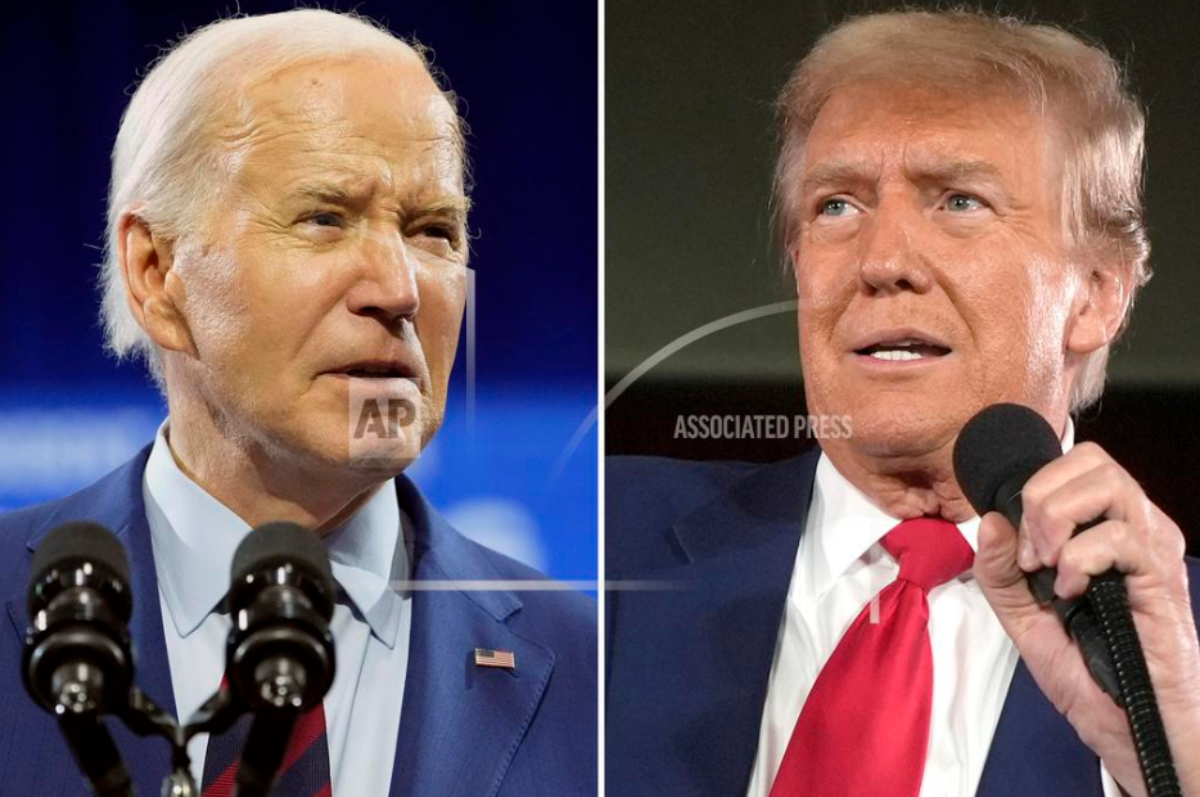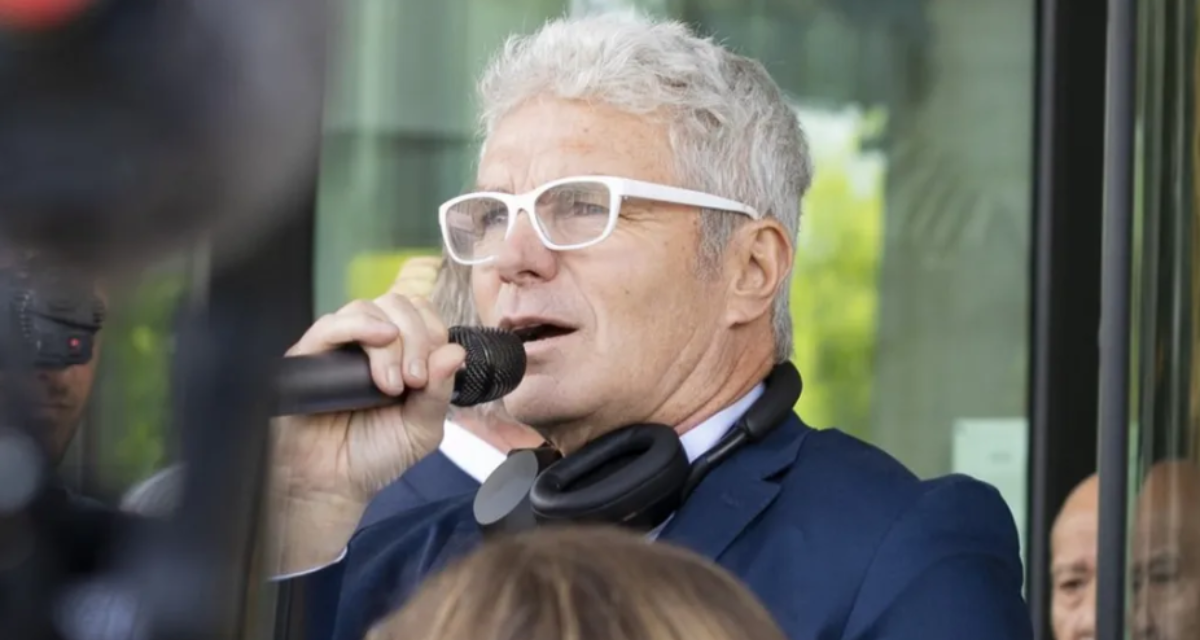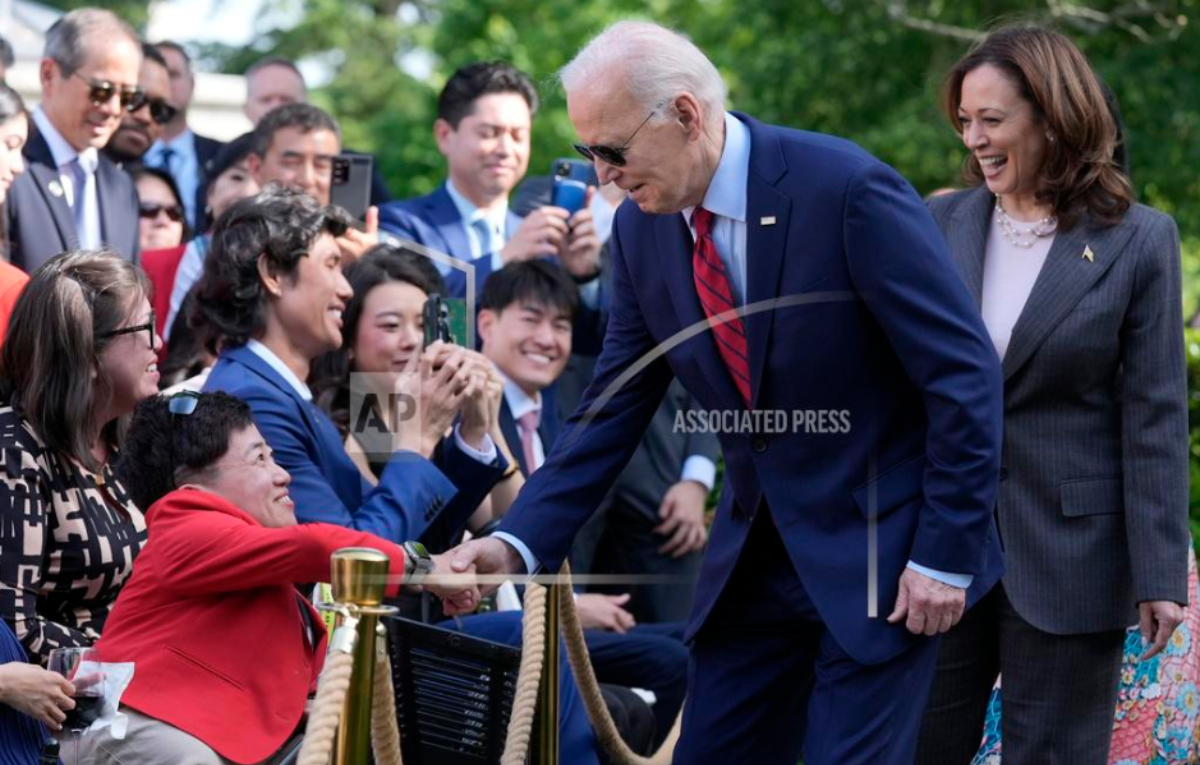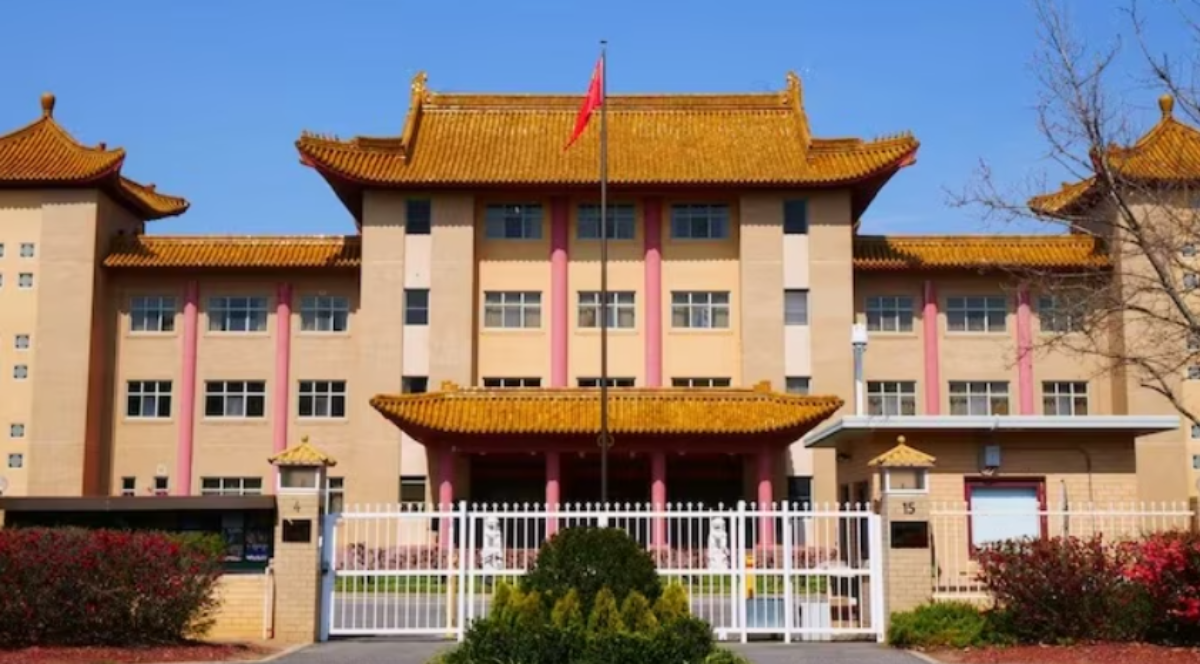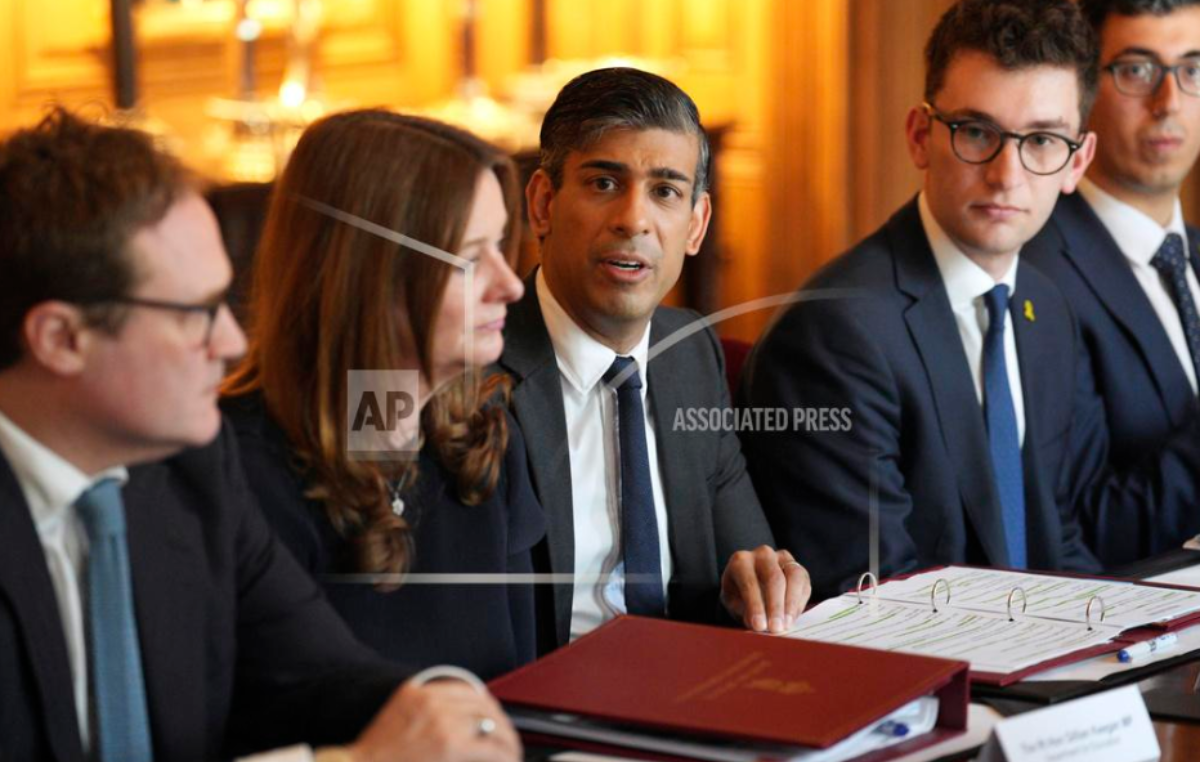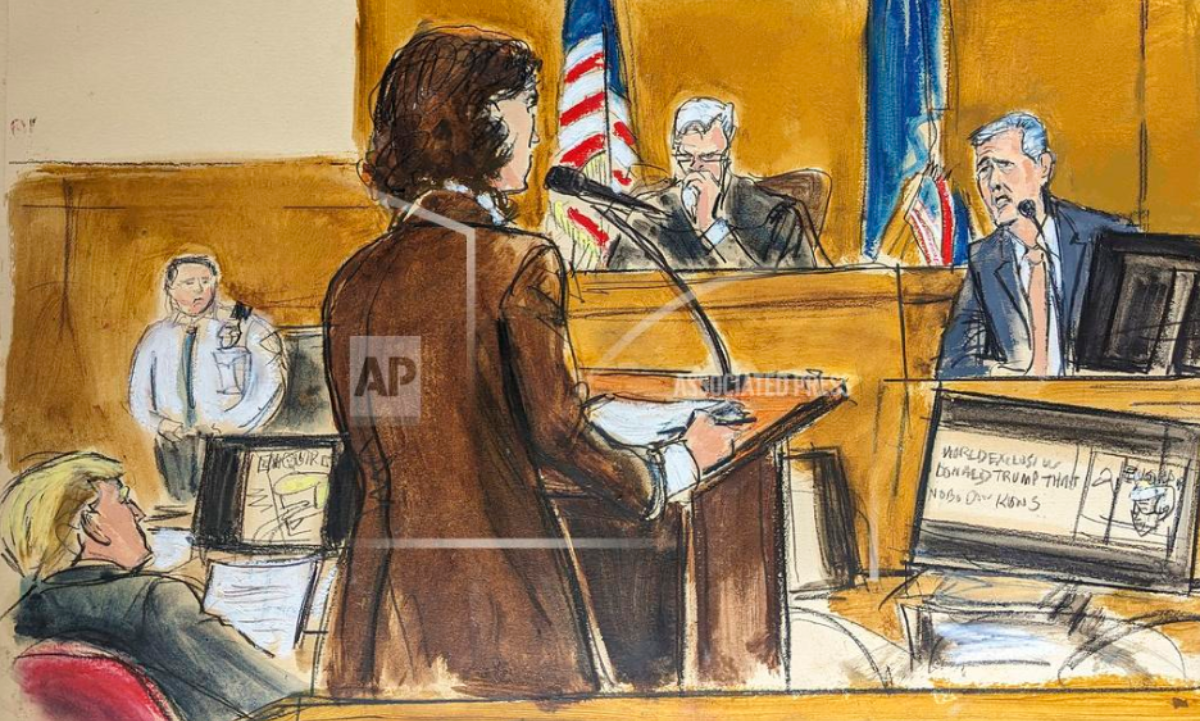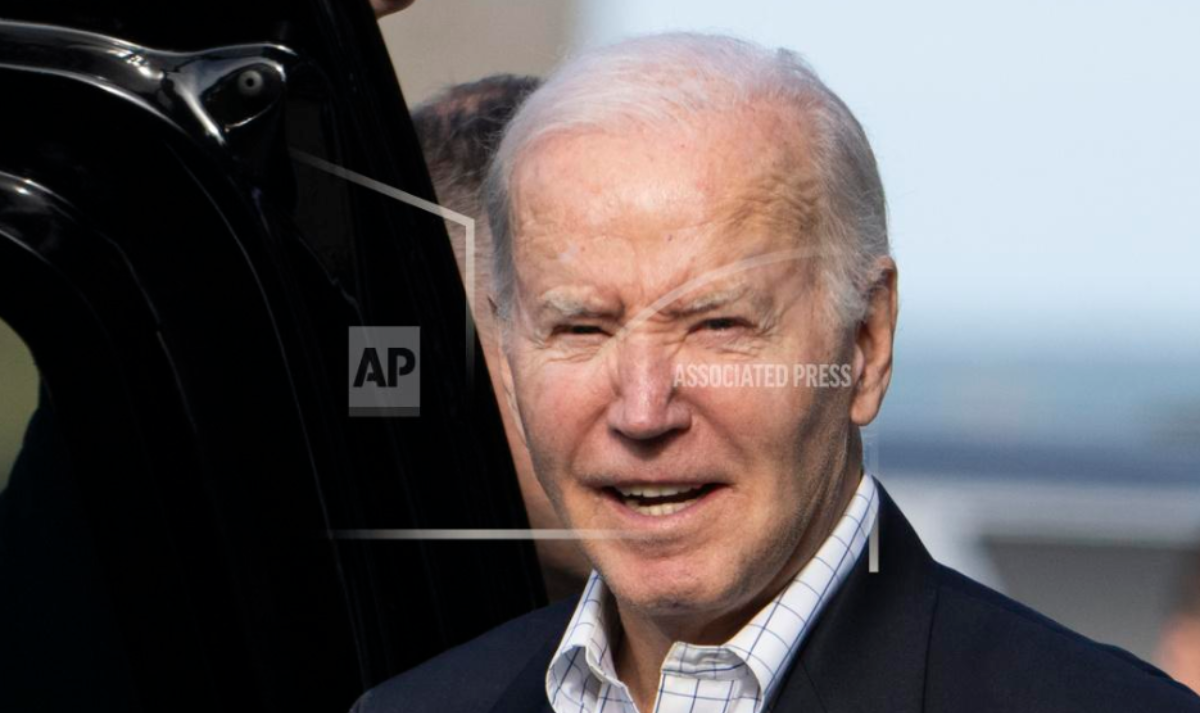-
Posts
5,817 -
Joined
-
Last visited
Content Type
Profiles
Forums
Downloads
Everything posted by Social Media
-
In a sobering assessment of cybersecurity threats, Anne Keast-Butler, the director of Britain's signals intelligence agency, GCHQ, has sounded the alarm on China's increasing cyber risk to the UK. Speaking at a security conference in Birmingham, Keast-Butler highlighted China as the top priority for her agency, echoing the sentiments expressed by the British government in the past. Keast-Butler emphasized that while cyber threats from Russia and Iran are indeed significant and aggressive, China's cyber capabilities pose a unique challenge. Describing China as "the epoch-defining challenge," she pointed out that the People's Republic of China (PRC) has developed advanced cyber capabilities and is leveraging a growing commercial ecosystem of hacking outfits and data brokers to further its cyber agenda. The warning comes in the wake of a suspected cyber attack on private IT contractor SSCL, which holds government contracts and houses records of thousands of British military personnel. While Defence Secretary Grant Shapps confirmed the attack, attributing it to a "malign actor," reports suggest that Beijing is suspected to be behind the incident. The gravity of the situation has prompted UK Prime Minister Rishi Sunak to acknowledge the threats posed by "an axis of authoritarian states" including Russia, Iran, North Korea, and China. This acknowledgment coincides with the appearance of three men in a London court on charges related to assisting intelligence services in Hong Kong, prompting the UK government to summon China's ambassador to Britain. In response, Chinese officials have vehemently denied the accusations, dismissing them as "groundless and slanderous." However, the tit-for-tat exchange of allegations and denials underscores the escalating tensions between the UK and China over cybersecurity issues. The incident involving SSCL is just one of several recent cyberattacks attributed to China, raising concerns not only in the UK but also across Europe and the US. With China's cyber capabilities becoming increasingly sophisticated, cybersecurity has emerged as a pressing national security concern for governments worldwide. As the threat landscape continues to evolve, it is imperative for governments to strengthen their cybersecurity measures and enhance collaboration to counter cyber threats effectively. The challenge posed by China's cyber activities underscores the need for robust cybersecurity strategies and international cooperation to safeguard critical infrastructure and protect against malicious cyber actors. Credit: Financial Times 2024-05-16 Get our Daily Newsletter - Click HERE to subscribe
-
Psychedelics have long been associated with counterculture and recreational use, but recent years have seen a shift in perception, with growing interest in their potential therapeutic benefits. Among the various conditions being explored for psychedelic treatment, chronic pain stands out as a particularly promising area of research. Court Wing's experience in a 2020 clinical trial at NYU for psilocybin and major depressive disorder revealed an unexpected outcome: his long-standing chronic pain disappeared alongside his depression. This revelation, echoed by similar anecdotes from others, underscores the potential of psychedelics like psilocybin mushrooms and LSD in alleviating severe chronic pain. The estimated 51 million Americans suffering from chronic pain, including conditions like migraines, phantom limb pains, and fibromyalgia, often face limited treatment options. While psychedelics offer relief to some, regulatory hurdles hinder broader access. Despite ongoing clinical trials and mounting evidence of their efficacy, psychedelics remain classified as illegal Schedule I substances by the Drug Enforcement Administration. Most current psychedelic research focuses on mental health conditions, with MDMA poised for FDA approval for PTSD treatment. However, chronic pain sufferers are left to navigate the psychedelic underground for relief. The recent announcement of a nearly $22 million grant by the National Institutes of Health for clinical trials on psychedelic-assisted therapy and chronic pain relief marks a significant step forward in legitimizing their potential. Despite the promising outlook, the path to legal prescription of psychedelics for chronic pain will likely be lengthy. Meanwhile, millions continue to suffer, highlighting the urgency of advancing research and regulatory processes. Cluster headaches, described as "suicide headaches," have garnered attention for their excruciating pain and limited treatment options. Reports of individuals finding relief with psychedelics like LSD and psilocybin have fueled interest in their potential therapeutic use. Research on psychedelics and pain relief dates back decades, though it has faced challenges, including regulatory restrictions and limited funding. Recent efforts, supported by initiatives like the Psychedelics and Pain Association, aim to address these barriers and expand research into psychedelics' mechanisms of action and potential applications. Psychedelics offer a unique opportunity to update our understanding of chronic pain, which often persists long after the underlying tissue damage has healed. By targeting the central nervous system and altering pain perception, psychedelics may provide relief where traditional treatments fall short. However, the lack of randomized placebo-controlled trials remains a challenge, underscoring the need for further research. While awaiting FDA approval, individuals seeking relief from chronic pain may turn to alternative sources, raising concerns about safety and legality. State decriminalization efforts and investments in harm reduction and public education can mitigate risks and provide support for those seeking psychedelic treatments. Additionally, ongoing citizen science initiatives like Clusterbusters play a vital role in knowledge dissemination and support provision. Credit: VOX 2024-05-16 Get our Daily Newsletter - Click HERE to subscribe
-
Buckingham Palace recently unveiled the first official portrait of King Charles III since his coronation, and it has sparked a range of reactions due to its unconventional style. The 8.5 by 6.5-foot painting, created by British artist Jonathan Yeo, features the monarch clad in the uniform of the Welsh Guards, standing against a vivid red background. The portrait, which incorporates elements of traditional royal portraiture with modern aesthetics, aims to capture the king's deep humanity and evolving role in public life. Yeo, known for his portraits of high-profile figures like Tony Blair and Nicole Kidman, began the project while Charles was still Prince of Wales. He had multiple sittings with the king and also worked from drawings and photographs to create the final artwork. The painting was commissioned to commemorate the 50th anniversary of Charles' membership in The Drapers’ Company, a philanthropic organization supporting education initiatives. The portrait will be exhibited to the public at the Philip Mould Gallery in London before being displayed at Drapers’ Hall alongside other royal portraits. Despite the positive reception from the King and Queen, who expressed approval of the artwork, it has sparked divided opinions among viewers, particularly on social media. While some praised the portrait for its unique interpretation and capturing the essence of the king, others criticized the choice of the intense red background, likening it to negative associations such as colonization or hell. Art historian Richard Morris commended Yeo's portrayal, highlighting the artist's ability to reveal the subject's flaws and mortality through his work. Yeo, who primarily works with oils, explained that the vibrant colors used in the portrait pay homage to the royal heritage while injecting a contemporary element into the genre. He emphasized that the butterfly depicted in the painting symbolizes beauty and nature, reflecting the king's passion for environmental conservation. Interestingly, Yeo's artistic repertoire extends beyond traditional portraiture, as evidenced by his foray into collage art. In the past, he created satirical portraits using cutouts from pornographic magazines to comment on political and moral issues. However, his portrait of King Charles III represents a departure from such provocative themes, focusing instead on celebrating the monarch's reign and personal interests. Notably, King Charles III is also an artist himself, with a collection of his watercolors previously exhibited in London. He has described painting as a therapeutic activity that rejuvenates the soul—a sentiment that resonates with his appreciation for the arts and creativity. In essence, Yeo's portrait of King Charles III serves as a contemporary representation of the monarchy, blending traditional symbolism with modern aesthetics. While its bold style may not appeal to everyone, it undoubtedly adds to the diverse tapestry of royal portraiture and reflects the evolving nature of artistic expression in the 21st century. Credit: CNN 2024-05-16 Get our Daily Newsletter - Click HERE to subscribe
-
President Biden has challenged Trump to a one-on-one showdown, bypassing the traditional structure established by the nonpartisan Commission on Presidential Debates. This move, which could see the two leaders face off as soon as next month, marks a departure from the standard format of three debates hosted by the commission in September and October. In a video released Wednesday, Biden made his intentions clear, citing his previous debate victories over Trump in 2020 and calling on the former president to set the stage for their next encounter. Referencing Trump's ongoing legal proceedings, Biden taunted him to "pick the dates" and suggested he's free on Wednesdays due to his trial schedule. Trump's campaign had previously expressed eagerness for more debates, urging for an early start to the proceedings. However, Biden's challenge shifts the dynamics of the debate landscape, aiming to overhaul the traditional format perceived as resembling an entertainment spectacle. The Biden campaign's proposal seeks to streamline the debate process by collaborating directly with broadcast networks, bypassing the Commission on Presidential Debates. Their vision entails a simplified setup with only the two candidates and a moderator, eliminating the presence of an audience. Additionally, they advocate for stricter enforcement of debate rules, including automatic microphone cutoffs to ensure adherence to time limits and speaking turns. If Biden's proposal comes to fruition, it would include a vice presidential debate in July followed by a presidential debate in September, all scheduled before the majority of early voting takes place. This timeline underscores the campaign's emphasis on engaging voters early on through direct engagement between the candidates. Up Date: Trump Agrees: In his response on Truth Social, Trump expressed readiness to participate in the proposed debates and advocated for more than just two opportunities for the American people to hear from the candidates. They have both agreed to participate in a June 27 presidential debate. Set to take place in CNN's Atlanta studios, the debate will be moderated by news anchors Jake Tapper and Dana Bash, with no audience members in attendance. The swift acceptance of the invitation by both candidates indicates a willingness to engage in a head-to-head discussion, despite the absence of the Commission. Biden's decision to challenge Trump to a debate earlier in the day, followed by Trump's acceptance and proposal for additional debates in July and August, underscores the eagerness of both campaigns to engage in direct dialogue. Biden's offer to debate twice in one-on-one settings reflects a proactive approach to engaging voters well before most early voting takes place. Credit: AXIOS 2024-05-16 Get our Daily Newsletter - Click HERE to subscribe
-
In a significant development, reports suggest that age limits will be introduced for the first time regarding the teaching of sex education in schools. Under the proposed guidelines, children will not receive any form of sex education until they reach the age of nine, marking a pivotal shift in educational policy. Key Provisions: 1. Age Restrictions: Schools will be instructed not to commence sex education until year 5, when students are approximately nine years old. 2. Gender Identity: Children will not be taught about changing their gender, reflecting a conservative stance on gender-related discussions. 3. Explicit Content: Any explicit conversations about sexuality will be prohibited until the age of 13, ensuring a gradual introduction to sensitive topics. 4. Contraception and Health: Detailed discussions on contraception, sexually transmitted infections, and abortion will be introduced at the age of 13, aligning with broader health education initiatives. Government Response: Education Secretary Gillian Keegan is expected to unveil these measures in response to concerns regarding age-inappropriate content in relationships, sex, and health education. The proposed guidelines aim to address these concerns and provide parents with greater transparency regarding the educational material. Implementation and Impact: Schools will be mandated to furnish parents with samples of the curriculum their children will receive, fostering greater parental involvement in their child's education. These changes come in the wake of the compulsory introduction of relationships, sex, and health education (RSHE) in all English schools in September 2020. Existing Curriculum: The current RSHE framework covers a wide range of topics, including diverse family structures and healthy relationships for primary school children. Secondary school students delve into more complex subjects such as puberty, consent, and online safety. Department for Education Response: While the Department for Education refrained from confirming the reports, it emphasized a commitment to providing comprehensive education while respecting age-appropriate boundaries. The department neither confirmed nor denied the leaked information, citing a policy against speculating on unofficial disclosures. Credit: Sky News 2024-05-16 Get our Daily Newsletter - Click HERE to subscribe
-
In a dramatic display of dissent, crowds flooded the streets of Georgia's capital, Tbilisi, following parliament's approval of a contentious "foreign influence" bill. The legislation, perceived by critics as reminiscent of Russian-style censorship, has sparked outrage among demonstrators and drawn international concern. The Vote: Amid heated debate, lawmakers voted 84-30 in favor of the bill, prompting immediate outcry from protesters gathered outside parliament. Attempts to breach barriers resulted in clashes with authorities, leading to multiple arrests and injuries. The passage of the bill, seen as a blow to free speech and democratic principles, ignited widespread condemnation. Contentious Provisions: The bill mandates registration for media outlets and NGOs receiving over 20% of their funding from abroad, labeling them as "pursuing the interests of a foreign power." While the government argues it is necessary to combat foreign interference, opponents denounce it as a tool for stifling dissent and undermining Georgia's democratic aspirations. International Backlash: European Council President Charles Michel emphasized the importance of upholding democratic principles for Georgia's EU aspirations, while the White House expressed deep concern, warning of repercussions for Georgia's relationship with the U.S. if the law is enacted. Assistant Secretary of State James O'Brien urged adherence to EU norms and voiced opposition to any crackdown on peaceful protests. Political Turmoil: The bill's passage exacerbates existing tensions between President Salome Zourabichvili and the ruling Georgian Dream party. Despite Zourabichvili's pledge to veto the legislation, Georgian Dream holds a majority capable of overriding her decision. Renewed demonstrations underscore widespread discontent and highlight divisions within Georgian politics. Street Clashes and Parliamentary Brawls: Recent protests have been marked by confrontations between demonstrators and police, culminating in a brawl within parliament. Accusations of political vendettas and manipulation have intensified the discord between ruling and opposition factions, fueling the unrest. Unified Resistance: Opposition figures have rallied against the bill, framing the protests as a collective struggle for Georgia's European future. Amid accusations of betrayal and constitutional breaches, demonstrators remain steadfast in their demand for the preservation of democratic values and freedoms. Uncertain Future: With President Zourabichvili's veto power in question and the ruling party's determination to push the bill forward, Georgia stands at a crossroads. The outcome of this legislative battle will not only shape the country's domestic landscape but also its international standing and aspirations for European integration. Credit: BBC 2024-05-15 Get our Daily Newsletter - Click HERE to subscribe
-
Recent polling conducted by The New York Times/Siena College/Philadelphia Inquirer reveals that former President Trump currently holds a lead over President Biden in hypothetical head-to-head general election match-ups in five out of six key battleground states. The polling, conducted from April 28 to May 9, indicates Trump leading among registered voters in Pennsylvania, Arizona, Michigan, Georgia, and Nevada, with Biden only maintaining a lead in Wisconsin. Among registered voters, Trump's lead ranges from 47 percent to 50 percent, while Biden's support falls between 38 percent to 47 percent in the mentioned battleground states. However, when considering likely voters, the difference narrows, with Biden's performance slightly improving in some states. Notably, in Michigan, Biden manages to secure a 1-point lead over Trump among likely voters, whereas in Wisconsin, Trump leads Biden by a slim margin. Even when third-party and independent candidates are included in the polling, Trump maintains a lead over Biden across most states. Robert F. Kennedy Jr. emerges as the third-place candidate in Arizona, Georgia, Michigan, Nevada, and Pennsylvania. It's noteworthy that the polling results have remained relatively consistent since October 2023, with Trump consistently leading Biden in most states except for Wisconsin. However, the Biden campaign remains confident, citing inconsistencies in polling data and highlighting other polls that show Biden in the lead. According to Biden pollster Geoff Garin, many voters are still undecided, and the Biden campaign is actively engaging in voter outreach efforts to win them over. The Trump campaign has not yet issued a statement regarding the polling results. The polling sample included 4,097 registered voters across the mentioned battleground states, with a margin of error ranging from 1.8 to 4.6 percentage points depending on the state. The national polling average from The Hill/Decision Desk HQ suggests a close race between Trump and Biden, with Trump holding a slight lead when including Kennedy in the polling average. Credit: The Hill 2024-05-15 Get our Daily Newsletter - Click HERE to subscribe
-
The Archewell Foundation, spearheaded by the Duke and Duchess of Sussex, has come under fire for its failure to submit annual records to California's Registry of Charities and Fundraisers. This mishap has led to the foundation being labeled as "delinquent," sparking concerns about its ability to solicit and disburse charitable funds. The issue appears to stem from a cheque sent by the Archewell Foundation to the registry, which was reportedly not received. As a result, the foundation was unaware of the discrepancy until it received a notice of delinquency from the regulatory authority. However, steps have been taken to rectify the situation, with a new cheque being dispatched to address the outstanding payment. Despite assurances from the foundation that the issue will be resolved promptly, the gravity of the situation cannot be understated. A delinquent status not only tarnishes the foundation's reputation but also jeopardizes its ability to fulfill its mission of charitable giving and community support. Furthermore, the potential penalties and repercussions outlined by California's Registry of Charities and Fundraisers serve as a stark reminder of the importance of regulatory compliance in the nonprofit sector. Amidst the controversy surrounding its administrative oversight, the Archewell Foundation continues to espouse its commitment to making a positive impact on society. Founded by Prince Harry and Meghan Markle in 2020, the foundation aims to "show up, do good," by leveraging its platform to uplift and unite communities through acts of service and compassion. In a recent development, the royal couple visited Giants of Africa, a local charity in Lagos, Nigeria, as part of their philanthropic endeavors. During their visit, Harry and Meghan announced a partnership between Giants of Africa and the Archewell Foundation, signaling their ongoing dedication to charitable initiatives both locally and globally. As scrutiny mounts over the foundation's compliance with regulatory requirements, Harry and Meghan find themselves navigating yet another challenge in their quest to effect positive change. Credit: Sky News 2024-05-15 Get our Daily Newsletter - Click HERE to subscribe
-
The United States finds itself in a precarious position, delicately balancing the pursuit of a ceasefire with the overarching goal of neutralizing the threat posed by Hamas. It's a complex web of diplomacy, strategy, and geopolitical intricacies, where each move carries profound implications for the stability of the region. At the core of the challenge lies the Biden administration's primary objective: securing a lasting cessation of hostilities. After more than seven months of violence, the urgent need to halt the bloodshed and alleviate the suffering of civilians remains paramount. Yet, intertwined with this imperative is the daunting task of dismantling Hamas's capacity to perpetrate further violence. In the words of White House National Security Council spokesperson John Kirby, "If we can get a ceasefire, we can get something more enduring and then maybe end the conflict." This sentiment underscores the administration's commitment to finding a resolution that goes beyond mere temporary respite. Biden reiterated that with Gaza ceasefire possible 'tomorrow' if Hamas frees hostages However, achieving such a resolution is no small feat, given the entrenched nature of Hamas within the Gaza Strip. As Kirby acknowledges, "An enduring defeat of Hamas certainly remains the Israeli goal, and we share that goal with it." The challenge, then, lies in reconciling the pursuit of ceasefire with the broader objective of weakening Hamas's influence. To navigate this intricate terrain, the United States adopts a multifaceted approach. On one hand, diplomatic efforts are focused on brokering a ceasefire agreement that addresses the immediate concerns of both parties. This requires skillful negotiation and a willingness to engage with all stakeholders, including Hamas. Simultaneously, the US is engaged in long-term strategic planning aimed at bolstering alternative governance structures in Gaza. This involves supporting the Palestinian Authority (PA) in assuming greater responsibility for governance and security within the region. As one US official explains, "What we are trying to do is advance a vision where Hamas would be marginalized, while Israel would be stronger through improved relations with its Arab neighbors." This vision entails empowering the PA to govern effectively and provide for the needs of the Palestinian population. However, realizing this vision is fraught with challenges. The PA, already weakened by years of political infighting and allegations of corruption, faces an uphill battle in gaining the trust and confidence of the Palestinian people. Rebuilding the PA's credibility will require concerted efforts and sustained international support. Moreover, the US strategy faces resistance from various quarters, including Israel and Hamas. While Israel shares the goal of neutralizing Hamas, it remains wary of the PA's capacity to maintain security in Gaza. Meanwhile, Hamas views any attempt to sideline it as a threat to its legitimacy and survival. Amidst these complexities, the United States must navigate a delicate balance of interests and alliances. It seeks to advance its strategic objectives while maintaining close ties with key regional partners, including Israel and moderate Arab states. This requires deft diplomacy and a nuanced understanding of the region's dynamics. Furthermore, the US strategy must contend with broader geopolitical considerations, including the role of regional actors such as Iran, Turkey, and Qatar. These actors often seek to exploit the Israel-Hamas conflict to further their own agendas, complicating efforts to achieve lasting peace and stability. Credit: T.O.S. 2024-05-15 Get our Daily Newsletter - Click HERE to subscribe
-
David McBride's name has become synonymous with courage, but also with the harsh realities faced by whistleblowers. In a landmark case that has captivated Australia and the world, McBride, a former military lawyer, stood accused of leaking classified documents exposing alleged war crimes by Australian forces in Afghanistan. His sentencing to five years and eight months in jail has ignited a debate on whistleblower protections and the pursuit of justice. McBride's journey from soldier to whistleblower is emblematic of the complexities inherent in speaking truth to power. Motivated by a sense of moral duty, McBride felt compelled to reveal what he believed were egregious violations of international law. Yet, his actions have landed him in a legal quagmire, highlighting the inherent risks faced by those who dare to challenge the status quo. At the heart of McBride's case lies a fundamental question: do whistleblowers serve the greater good, or do they jeopardize national security? Prosecutors argued that McBride's actions endangered Australia's interests and undermined its foreign policy objectives. However, McBride's supporters contend that his leak was justified, as it ultimately exposed wrongdoing and held accountable those responsible for atrocities. The legal battle that ensued laid bare the inadequacies of Australia's whistleblower protections. Despite existing safeguards enshrined in law, McBride's case revealed the limitations of these provisions, particularly when national security concerns are invoked. McBride's legal team faced numerous hurdles in mounting a defense, as much of their evidence was struck out on national security grounds. Moreover, the chilling effect of McBride's prosecution cannot be overstated. Advocates argue that his case sends a stark message to would-be whistleblowers: speak out at your own peril. The fear of retaliation and legal reprisals may deter individuals from coming forward with information vital to the public interest, perpetuating a culture of secrecy and impunity. The broader implications of McBride's case extend beyond Australia's borders. It raises questions about the global treatment of whistleblowers and the importance of robust legal protections for those who expose wrongdoing. McBride's plight has garnered international attention, drawing comparisons to other whistleblowers such as Julian Assange and Edward Snowden, who have faced similar persecution for their actions. In the aftermath of McBride's sentencing, calls for reform have grown louder. Parliamentarians, activists, and human rights organizations have denounced the outcome as a miscarriage of justice, calling for urgent legislative changes to strengthen whistleblower protections. The need for transparency, accountability, and justice has never been more pressing. As McBride begins his prison sentence, his case serves as a stark reminder of the sacrifices made by those who dare to challenge authority in pursuit of truth and justice. His story resonates far beyond the walls of the courtroom, sparking a national conversation about the values we uphold as a society and the responsibilities we owe to those who speak out against injustice. Credit: BBC 2024-05-15 Get our Daily Newsletter - Click HERE to subscribe
-
In the shadow of the COVID-19 pandemic, another crisis looms on the horizon—one that could make the current global health crisis pale in comparison. The rise of drug-resistant superbugs poses a grave threat to humanity, warns Prof Dame Sally Davies, England’s former chief medical officer and current UK special envoy on antimicrobial resistance (AMR). With common infections evolving into untreatable threats due to misuse of antibiotics, millions of lives hang in the balance. Davies paints a grim picture of a future where drug-resistant infections become widespread, rendering current medical treatments ineffective. The consequences could be catastrophic, making routine medical procedures such as caesarean sections, cancer interventions, and organ transplants perilous endeavors. In essence, the very foundation of modern medicine would be shaken to its core. The urgency of the situation cannot be overstated. Already, drug-resistant infections claim the lives of at least 1.2 million people annually—a staggering toll that is poised to escalate if decisive action is not taken. Davies emphasizes that the window of opportunity to address the issue is rapidly closing, warning that failure to act within the next decade could have dire consequences for generations to come. The recent announcement of a national action plan on AMR by the UK government is a step in the right direction. However, much more needs to be done on a global scale to curb the misuse of antimicrobials in both human and animal healthcare, strengthen surveillance of drug-resistant infections, and incentivize the development of new drugs and vaccines. Davies's personal connection to the issue, having lost her goddaughter to a drug-resistant infection, underscores the human toll of AMR. Her goddaughter, Emily Hoyle, battled cystic fibrosis and succumbed to an infection that could not be treated—a tragic reminder of the stakes involved in the fight against superbugs. Addressing AMR requires a multifaceted approach that spans healthcare, agriculture, and environmental stewardship. The overuse of antibiotics in farming, for example, contributes significantly to the spread of drug resistance, highlighting the need for sustainable practices and responsible antibiotic use. While the challenges posed by AMR are daunting, there is cause for cautious optimism. Breakthroughs in genomics and artificial intelligence offer promising avenues for the development of new antibiotics, while innovative funding models such as subscription-based access to antimicrobials show potential for ensuring their availability while preserving their efficacy. As Davies and other global leaders advocate for action on the world stage, the urgency of addressing AMR becomes increasingly apparent. The upcoming UN high-level meeting on the issue represents a critical opportunity to set ambitious targets and mobilize international cooperation. Credit: The Guardian 2024-05-15 Get our Daily Newsletter - Click HERE to subscribe
-
President Biden's confidence in his political standing defies the dismal poll numbers that suggest otherwise, and this conviction is shared by many of his inner circle, insiders reveal. The significance: This isn't mere political posturing; it's a genuine belief held by Democrats close to Biden, shaping his campaign strategy despite mounting pressure for a course correction due to his lagging numbers compared to four years ago. According to them, public polling fails to accurately capture the depth of support for the president. What's happening: Biden is adamant, both publicly and privately, that he's making significant strides in popularity and is likely ahead of Donald Trump in their potential 2020 rematch. During a recent fundraising swing on the West Coast, Biden asserted, "The momentum is clearly in our favor, with the polls moving towards us and away from Trump," urging donors to see beyond media coverage. Earlier, when confronted with unfavorable poll data in a rare CNN interview, Biden criticized polling methodology at large, questioning the reliability of surveys. The latest polling in crucial battleground states like Arizona, Georgia, Michigan, Nevada, Pennsylvania, and Wisconsin paints a bleak picture for Biden, with surveys indicating Trump's lead among registered voters. However, some national polls show Biden either ahead or tied with Trump, offering a glimmer of hope amid the gloom. Reality check: Biden often cites favorable polling data, emphasizing his strength among likely voters and downplaying setbacks among registered voters. He's well-versed in polling intricacies and often delves into detailed analyses. Despite public skepticism about polling accuracy, Biden remains upbeat, citing his come-from-behind victory in the 2020 primaries as evidence of his resilience. The broader context: Biden and his team have consistently felt underestimated by the political establishment and public polls, taking solace in his relatable "Scranton Joe" persona and his ability to connect with voters when it matters most. In response to skepticism, Biden's spokesperson emphasized the importance of the candidate's agenda and outreach efforts, expressing confidence in Biden's appeal to voters. While some Democrats worry about the Biden camp's apparent dismissal of unfavorable polling, Biden's team remains steadfast in its belief that voters will ultimately choose a return to stability over a resurgence of Trumpism. The truth will emerge come November, as voters cast their ballots and determine the course of the nation's future. Credit: AXIOS 2024-05-15 Get our Daily Newsletter - Click HERE to subscribe
-
Chinese police were permitted entry into Australia by the federal police, leading to the escorting of a Chinese-born Australian resident back to China for trial. This revelation, unveiled in a recent Four Corners program about a former Chinese spy, has sparked condemnation from Australian politicians concerned about potential threats to national security. The Incident: Chinese police, acting under the guise of an anti-corruption operation known as Operation Fox Hunt, entered Australia in 2019 to apprehend a 59-year-old Australian resident of Chinese descent named Wang. Despite claiming to target "economic criminals," Operation Fox Hunt has drawn criticism for its alleged use in silencing dissidents and abducting individuals globally. Alarming Response: Shadow Home Affairs Minister James Paterson expressed alarm over what he termed an "extrajudicial extradition" facilitated by the Australian Federal Police (AFP). The incident has raised concerns about coercive measures by foreign governments on Australian soil. Political Backlash: Federal politicians, including Labor MP Peter Khalil and Greens Senator David Shoebridge, have condemned the breach, calling it "deeply disturbing" and "utterly incredible." Critics argue that allowing Chinese police onto Australian shores poses significant risks, given China's record of pursuing dissidents abroad. Opaque Agreements: The AFP's engagement with Chinese security agencies, including the Ministry of Public Security (MPS), has come under scrutiny. While the AFP has confirmed agreements with Chinese agencies, the details remain undisclosed. Paterson and Shoebridge demand full disclosure to understand the extent of such arrangements and their implications for Australian residents. Call for Transparency: Amidst growing concerns, there are calls for transparency regarding the AFP's interactions with Chinese authorities. Paterson warns against naivety in trusting Chinese agencies and stresses the need for strict oversight to protect Australian interests and residents. Unveiling Interference: Khalil underscores the broader issue of Chinese government interference in Australia, labeling it as part of an "iceberg" of foreign influence activities. The AFP's reluctance to divulge details raises questions about the extent of Chinese interference and its impact on Australian sovereignty. Rule of Law: While the AFP maintains its commitment to Australian law and protecting the community, questions linger about the legality and ethics of its actions. The case highlights the delicate balance between international cooperation and safeguarding national interests. Uncertain Fate: Wang's current whereabouts remain unknown, raising concerns about her well-being and legal status. The case underscores the complexity of extradition and mutual assistance treaties and underscores the need for robust legal frameworks to navigate such challenges. Credit: ABC AU 2024-05-15 Get our Daily Newsletter - Click HERE to subscribe
-

UN Cuts Death of Women and Children in Gaza by Half
Social Media posted a topic in The War in Israel
The United Nations made a significant adjustment downwards around 50% to the casualty figures for the ongoing conflict in the Gaza Strip, sparking questions and debates about the accuracy of the data and the methods used to gather it. The United Nations Office for Coordination of Humanitarian Affairs (OCHA) revised its child fatality figure from the Gaza war sharply downward, reporting more than 14,500 deaths on May 6 but then 7,797 on May 8. OCHA also revised downward its figure for women fatalities from more than 9,500 deaths to 4,959 deaths. The sudden change in figures has raised eyebrows and led to speculation about the UN's sources and methodologies. David Adesnik, director of research at the Foundation for Defense of Democracies, suggests that the UN may have stopped using figures provided by the Hamas-run Government Media Office (GMO), opting instead for data from the Gaza Health Ministry. The shift in numbers underscores the challenges of accurately reporting casualties in conflict zones, especially when there are multiple sources providing conflicting information. Gabriel Epstein of the Washington Institute for Near East Policy has highlighted the discrepancies between the Hamas-run institutions, noting that they yield "wildly different and irreconcilable results." As has Elliott Abrams from Council on Foreign Relations. Critics argue that the UN's approach to monitoring casualties in Gaza differs from its methods in other conflict zones, raising concerns about bias and reliability. Hillel Neuer, executive director of UN Watch, suggests that the UN's reliance on Hamas for casualty figures perpetuates an anti-Israel narrative. Neuer points out that while the UN employs rigorous methodologies in other conflict situations, its approach to Gaza lacks transparency and accountability. He argues that the UN's credibility is at stake when it relies on sources with questionable credibility, such as Hamas-affiliated institutions. The revision of Gaza casualty figures comes amid ongoing scrutiny of Hamas's tactics and propaganda. In recent months, Hamas has faced criticism for its handling of casualty data and its use of civilians as human shields. The controversy surrounding casualty figures underscores the complexity of reporting on conflicts, where misinformation and propaganda often cloud the truth. As the conflict in Gaza continues, it is essential to critically evaluate the sources and methodologies behind casualty data to ensure accuracy and accountability. The UN has this following disclaimer on its footer on the Gaza deaths: "Disclaimer: The UN has so far not been able to produce independent, comprehensive, and verified casualty figures; the current numbers have been provided by the Ministry of Health or the Government Media Office in Gaza and the Israeli authorities and await further verification. Other yet-to-be verified figures are also sourced." According to the Times of Israel, the latest revision would bring the ratio of combatants to civilians killed in the conflict to nearly 1:1. “Either way, the number would be historically low for modern urban warfare,” West Point’s urban war studies chair John Spencer wrote in late March. Related Topics Hamas admits one-third of its data on Gazan deaths is ‘incomplete’ Scrutiny Over Gaza Death Toll Figures: UK Statistics Watchdog Investigates Hamas's Data How the Gaza Ministry of Health Fakes Casualty Numbers Credit: National Post 2024-05-14 Get our Daily Newsletter - Click HERE to subscribe -
In a recent campaign rally held in Wildwood, New Jersey, former President Donald Trump made headlines with his controversial remarks on a range of topics, from immigration and protests to environmental policy and even a bizarre reference to a fictional character. During his speech, Trump vowed to crack down on what he termed as "anti-American" protesters on college campuses, particularly those expressing support for Palestine. He declared that if elected president again, he would deport individuals who engage in "jihadism, anti-Americanism, or antisemitism" on American campuses. Trump also alleged that these protesters are funded by President Joe Biden's political donors, despite evidence to the contrary. Trump's comments echo his past rhetoric, where he has often portrayed himself as a defender of American values and national security. However, his proposed solution of deporting protesters has drawn criticism for its authoritarian undertones and potential violation of free speech rights. In addition to his stance on protests, Trump also criticized Biden's handling of the conflict in Gaza, particularly his decision to withhold a shipment of bombs to Israel. Trump accused Biden of betraying an American ally and voiced his support for Israel's military actions against Hamas. Beyond foreign policy, Trump took aim at Biden's environmental policies, particularly the Environmental Protection Agency's initiatives to promote electric vehicles. He labeled Biden's efforts as "insane" and suggested that the oil and gas industry would play a role in rolling back these policies in a potential second Trump administration. One of the more peculiar moments of Trump's speech came when he praised the fictional character Hannibal Lecter from the movie "The Silence of the Lambs." In a tangent about immigration, Trump referenced Lecter as a symbol of danger posed by criminals entering the United States. This bizarre comparison to a fictional serial killer raised eyebrows and prompted speculation about Trump's intent. Credit: Yahoo News 2024-05-13 Get our Daily Newsletter - Click HERE to subscribe
-

Trump's Fictional Crime Wave: Separating Fact from Fiction
Social Media posted a topic in World News
Former President Donald Trump has been painting a grim picture of America, describing a nation overrun by crime and violence. Trump's rhetoric includes promises to crack down on undocumented immigrants, deploy the National Guard to combat crime, and withhold federal funding from municipalities that do not adopt stringent law enforcement measures. But is there any truth to these claims? Trump's assertions about a surge in crime are not supported by evidence. Despite his alarming statements, data from reputable sources like the FBI and various law enforcement agencies indicate a decrease in violent crimes, including homicides, in recent years. In fact, the nationwide reduction in homicides has been significant, with a 6 percent decrease in 2022 and an additional 13 percent drop in 2023. However, Trump's narrative of a crime wave resonates with some voters, fueled by political and media narratives that amplify fears and biases. Ahead of the 2022 midterms, for example, one-quarter of Republican attack ads focused on crime, and Fox News aired numerous segments on the topic. Trump himself continues to make crime a centerpiece of his campaign strategy, despite the lack of empirical evidence to support his claims. The discrepancy between Trump's assertions and reality underscores the importance of critical thinking and scrutiny of information sources. It's crucial for community leaders, citizens, and politicians alike to challenge "alternative facts" and hold those who spread misinformation accountable. In a hyperpartisan political climate where trust in experts is eroded and misinformation proliferates, it's essential to uphold the truth as a cornerstone of democracy. Moreover, attributing spikes in crime to partisan affiliations is misleading. Demographic and economic factors, rather than political ideologies, play a significant role in crime rates. Claims that crime is a problem specific to certain political jurisdictions lack validity when examined closely. Trump's fictional crime wave is a stark reminder of the power of misinformation in shaping public perception. Credit: The Hill 2024-05-14 Get our Daily Newsletter - Click HERE to subscribe -
In a pivotal speech set to shape the political landscape, Rishi Sunak cautioned that the United Kingdom is teetering at a crossroads, with the next few years poised to be among the most perilous yet transformative in its history. Addressing voters in a pre-election pitch, the prime minister outlined his vision for steering the nation through these tumultuous times and forging a more secure future for all Britons. Sunak's speech comes in the wake of a sobering electoral performance for the Conservatives, with Labour seizing ground in local elections and polling data indicating a significant gap between the two parties in general election voting intentions. In response, Sunak seeks to rally support by positioning himself as the leader best equipped to navigate the challenges ahead. Central to Sunak's address was the theme of security, encompassing both domestic and foreign policy concerns. He will highlighted the threat posed by authoritarian regimes such as China, Russia, North Korea, and Iran, framing them as adversaries that undermine the UK's values and security. Additionally, Sunak underscored the need to address global immigration and harness the opportunities presented by emerging technologies like artificial intelligence. Emphasizing the urgency of the moment, Sunak stressed that profound changes await the UK in the coming years, surpassing anything witnessed in the past three decades. He pledged bold solutions to safeguard the nation against the specter of war, manage the complexities of immigration, and preserve shared values and identities. Furthermore, Sunak outlined his commitment to leveraging technological advancements to drive economic growth and societal progress. He asserted that the decisions made in response to these transformative shifts will shape Britain's destiny for years to come, underscoring the gravity of the choice facing the electorate. Meanwhile, Labour leader Sir Keir Starmer will meet with Labour mayors to discuss strategies for regional growth under a potential Labour government. Starmer will position Labour as the party of change, contrasting it with the perceived chaos and decline under the Tories. He will urge voters to embrace Labour's vision for a brighter future and to reject the status quo. As speculation mounts regarding the timing of the next general election, Foreign Secretary Lord David Cameron has voiced support for holding it in the second half of the year. This, he argues, would allow voters to witness the tangible effects of the government's economic plan, following recent signs of growth after a period of recession. However, Sunak faces challenges on multiple fronts, including internal dissent within his own party. The recent defection of MP Natalie Elphicke underscores the mounting pressure on Sunak to address concerns over housing and immigration policies. Credit: BBC News 2024-05-14 Get our Daily Newsletter - Click HERE to subscribe
-
Germany's domestic intelligence service, the Federal Office for the Protection of the Constitution (BfV), has secured another victory in court against the far-right Alternative for Germany (AfD), classifying it as a "suspected" far-right extremist organization. This legal battle sheds light on the agency's role as a guardian of democratic principles and underscores the ongoing struggle to combat extremism in Germany. The BfV's classification of the AfD as anti-constitutional highlights the agency's mandate to detect threats to democracy and coordinate intelligence efforts across Germany's 16 states. While the BfV lacks executive power, it plays a crucial role in gathering and evaluating information on anti-democratic movements, espionage activities, and extremist ideologies. Germany's intelligence landscape comprises various organizations, including the Military Counterintelligence Service (MAD) and the Federal Intelligence Service (BND), responsible for foreign intelligence. However, the BfV stands out as a key player in safeguarding domestic security and upholding democratic values. The BfV's focus on right-wing extremism reflects the prevailing threat to German democracy, although its reports also address other forms of extremism, including Islamist and left-wing ideologies. Despite occasional scandals, such as the failure to act on evidence related to the far-right terrorist group the National Socialist Underground (NSU), the BfV remains a pivotal force in combating extremism. The agency's oversight falls under the purview of a parliamentary supervisory committee, tasked with monitoring all federal intelligence services. However, recent controversies surrounding the AfD's classification as "partly right-wing extremist" have sparked debate over the suitability of AfD politicians to supervise the BfV's work. Legal challenges against the BfV's surveillance measures underscore the complexities of balancing security concerns with individual rights. While the BfV has the authority to surveil members of suspected extremist organizations, legal battles over surveillance raise questions about political interference and constitutional protections. The AfD's ongoing legal dispute against its classification as a suspected extremist organization reflects broader tensions within German politics. With the courts serving as a battleground for ideological conflicts, the outcome of these legal challenges will have far-reaching implications for democracy and civil liberties in Germany. As Germany grapples with the rise of far-right extremism and political polarization, the role of institutions like the BfV in safeguarding democratic principles becomes increasingly vital. However, the balance between security imperatives and democratic values remains a delicate and contentious issue, underscoring the challenges facing modern democracies in confronting extremism. Credit: DW 2024-05-14 Get our Daily Newsletter - Click HERE to subscribe
-
In an effort to combat the culture of excessive drinking and unruly behavior in tourist hotspots, Majorca and Ibiza have implemented a strict alcohol ban in designated areas. Under the new decree passed by the government of Spain's Balearic Islands, the sale of alcohol will be prohibited between 9.30pm and 8am in specific regions known for "excessive tourism." The targeted areas include Llucmajor, Palma, and Calvia (Magaluf) in Majorca, as well as San Antonio in Ibiza. Additionally, authorities have imposed restrictions on party boats, prohibiting them from sailing within one nautical mile of these destinations and from picking up or disembarking passengers in these zones. While the measures aim to address the issues associated with alcohol-fueled tourism, some businesses have expressed concerns that tourists may simply seek out neighboring resorts unaffected by the restrictions. This latest crackdown follows the implementation of a law introduced four years ago to address alcohol overconsumption. The 2020 legislation banned practices such as happy hours, pub crawls, and two-for-one drink offers, as well as imposing restrictions on alcohol sales in shops during specific hours. The government's efforts to curb rowdy behavior have been reinforced with the announcement of tougher sanctions for offenders. Tourists engaging in disruptive drinking behavior in public areas could face fines ranging from €750 to €1,500, with penalties increasing for more serious offenses. Jaime Martínez, the mayor of Palma, has emphasized the importance of promoting civility and correcting unacceptable behavior among tourists. The new decree is part of a concerted effort to enhance security, conduct inspections, and raise awareness among visitors in areas characterized by excessive tourism. With an allocated budget of up to €16 million for enforcement measures, including increased policing and public awareness campaigns, the government aims to create a safer and more enjoyable environment for residents and tourists alike. The decree is set to remain in effect until December 31, 2027, with the hope that by then, the need for such stringent regulations will have diminished. Credit: Sky News 2024-05-14 Get our Daily Newsletter - Click HERE to subscribe
-
Michael Cohen, Donald Trump's former lawyer and self-described "fixer," is set to testify against his ex-boss. Cohen's testimony is expected to shed light on a pivotal payment made to adult film star Stormy Daniels during the 2016 presidential campaign to silence her allegations of a sexual encounter with Trump. Facing questioning from seasoned prosecutor Susan Hoffinger, Cohen will provide insights into the payment, which he claims he made at Trump's direction. The trial has garnered significant attention as Cohen's testimony is crucial to the prosecution's case, alleging that Trump falsified business records related to the reimbursement of the hush money. Cohen's journey to the witness stand has been years in the making, with extensive cooperation with prosecutors and multiple interactions with investigators. His testimony is anticipated to reveal intricate details surrounding the payment and its subsequent reimbursement by Trump. However, Trump's defense team led by attorney Todd Blanche aims to undermine Cohen's credibility, highlighting his criminal convictions, including perjury charges related to false statements made to Congress. Blanche contends that Cohen's motivations are fueled by an obsession with Trump and a desire to shift blame for his own legal troubles. The trial has seen its share of dramatic moments, including Cohen's public criticisms of Trump on social media, prompting the presiding judge to caution against further violations of the gag order. Despite attempts by Trump's legal team to impose additional restrictions on Cohen, the judge refrained from granting a separate gag order but emphasized the need for restraint. Cohens testimony so far: So far, Michael Cohen has done exactly what prosecutors hoped he would do: Tying Donald Trump to every step and decision in the process of paying Stormy Daniels and others for their silence. Cohen has claimed Trump's motivations were to protect his presidential campaign, and he emphasised it was not for any other reason (as the defence has claimed). Over and over again, Cohen has alleged he communicated with and received approval from Trump before taking each action that led to the hush-money payout to Daniels. But there is still much to come. We have yet to get to the actual actions that spurred charges in this case. We've only just gotten to how Cohen was reimbursed for the payment to Daniels, and how those payments were recorded in Trump's business records. Prosecutors must also use his testimony to show intent - that Trump sought to conceal the true nature of the reimbursement of Cohen. We heard a bit of that today, but prosecutors will likely need more to make their case. We will also likley see the defence's cross examination tomorrow, and we can expect them to vigorously look for holes and contradictions in Cohen's account of Trump's alleged involvement. As the trial nears its conclusion, with only a few witnesses remaining, Cohen's testimony holds significant weight in determining the outcome of the case. Trump's potential decision to testify in his defense adds another layer of uncertainty to the proceedings, with the trial unfolding against the backdrop of his son's high school graduation. Credit: NBC News 2024-05-14 Get our Daily Newsletter - Click HERE to subscribe
-
Biden's decision to openly threaten to withhold arms deliveries to Israel if they enter for a full invasion Rafah, coupled with a State Department report critiquing Israeli conduct, has raised eyebrows and prompted concern over the future of the Israel-U.S. alliance. The timing and manner of Biden's intervention have been questioned by observers on both sides of the political spectrum. Firstly, the decision to publicly admonish Israel during a time of conflict has been deemed imprudent by many. Traditionally, close allies engage in private discussions during times of crisis to maintain trust and respect. By airing grievances publicly, Biden risks damaging the delicate balance of the alliance and providing propaganda opportunities to hostile powers. Moreover, Biden's motives have been called into question. Some critics argue that his actions may be influenced more by domestic politics than genuine concerns for peace and stability in the region. With polls showing Biden trailing behind Donald Trump and facing defections in key swing states, there are suspicions that his stance on Israel may be an attempt to appease certain voter demographics rather than a principled stance on foreign policy. Furthermore, Biden's approach has been met with skepticism due to its perceived inconsistency. While Biden initially pledged unwavering support for Israel, his recent actions have raised doubts about the reliability of U.S. commitments. By wavering on his promises, Biden risks undermining the strategic relationship between the two countries and eroding trust in U.S. leadership. The substance of Biden's threat and the State Department's report have also come under scrutiny. Critics argue that the report lacks specificity and is riddled with contradictions, reflecting internal discord within the Biden administration. Additionally, the decision to assess Israeli conduct during an ongoing conflict has been criticized as premature and potentially counterproductive. A fair and accurate evaluation of the situation would be best conducted after the dust has settled and all relevant information is available. One of the key points of contention is Biden's objection to Israel entering Rafah, a move seen by many as crucial to eliminating Hamas's military capabilities. By hindering Israel's ability to defend itself, Biden risks emboldening terrorist organizations and sending a dangerous message that barbarism will be rewarded. The moral culpability for civilian casualties lies with Hamas, yet Biden's stance could inadvertently empower them and undermine Israel's right to self-defense. As the situation continues to unfold, the onus lies with Israel's war cabinet to make critical decisions regarding its military strategy. Biden's threat to cut off arms deliveries will undoubtedly feature prominently in discussions about Israel's next steps. However, regardless of the outcome, it is clear that Biden's handling of the situation has introduced new complexities and uncertainties into the Israel-U.S. relationship. Opinion: John Bolton former US National Security Advisor Credit: Daily Telegraph 2024-05-14 Get our Daily Newsletter - Click HERE to subscribe
-
Denys Yaroslavskyi, Commander of a Ukrainian Special Reconnaissance Unit speaking to the BBC says he is no stranger to the brutality of war. Having fought in Ukraine’s surprise offensive in Kharkiv in 2022, he witnessed the triumph of pushing back an initial Russian invasion. However, the recent resurgence of Russian forces along the border has plunged Denys and his men back into the throes of conflict. Russian advances in the Kharkiv region, though modest in depth, have swallowed up significant swathes of Ukrainian territory, spanning approximately 100 kilometers. Denys, visibly frustrated, questions the absence of adequate defenses along the border. He recalls witnessing Russian troops effortlessly crossing the border, unimpeded by any semblance of resistance or fortified barriers. The lack of preparedness on Ukraine’s part, despite forewarnings from intelligence sources, raises troubling questions about negligence or corruption within the country's defense infrastructure. Denys views the incursion not as a failure, but as a betrayal of trust and duty to protect Ukrainian sovereignty. The plight of civilians caught in the crossfire underscores the gravity of the situation. With Russian forces encroaching on towns like Vovchansk, residents face the grim choice of fleeing or risking life under occupation. The relentless barrage of artillery and aerial bombardment leaves once-thriving communities reduced to rubble, with casualties mounting by the hour. For individuals like Serhii, whose home was destroyed by a Russian glide bomb, the devastation is deeply personal. As he surveys the wreckage, contemplating an uncertain future, his resilience is a testament to the human spirit amidst adversity. The exodus of residents, particularly the elderly and vulnerable, speaks volumes about the urgency of the situation. Oleksandr, a 65-year-old forced to abandon his lifelong home, symbolizes the collective anguish and displacement endured by countless Ukrainians. Amidst the chaos, Ukraine grapples with logistical challenges and a critical shortage of military resources. Delays in receiving essential support, compounded by bureaucratic hurdles, have hampered efforts to effectively counter Russian aggression. Denys’s anger is palpable as he reflects on the sacrifices made to reclaim territory in the past, only to confront a resurgence of conflict due to systemic failures. The toll of lives lost and communities shattered underscores the urgent need for decisive action and unwavering solidarity in the face of adversity. Credit: BBC 2024-05-13 Get our Daily Newsletter - Click HERE to subscribe
-
Donald Trump has made it clear: if he returns to the presidency, he will withhold federal funds from any school that enforces a vaccine mandate. This stance, while popular among his supporters, has raised significant concerns about its potential impact on public health and education across the United States. In recent speeches, Trump has doubled down on his vow, stating that he will not allocate a single penny to schools with vaccine mandates, from kindergarten through college. This hardline stance has sparked debate and criticism from health experts, educators, and politicians alike. Critics argue that Trump's proposal would effectively strip federal funding from every public school district in the country. Such a move would jeopardize the health and safety of students by undermining longstanding immunization policies that protect against diseases like polio, measles, and hepatitis B. While Trump's rhetoric may appeal to his base, many question the feasibility and wisdom of his plan. Dr. Peter Hotez, a renowned expert in pediatric virology, has expressed concern that implementing such a policy would lead to a public health catastrophe. The broader implications of Trump's proposal extend beyond public health. By politicizing vaccine mandates, the former president is injecting further division into an already contentious issue. The politicization of public health measures threatens to erode trust in science and undermine efforts to combat infectious diseases. Moreover, Trump's vow underscores the ongoing polarization of American politics. As the Republican Party continues to embrace anti-vaccine rhetoric, it risks alienating moderate voters and exacerbating existing public health challenges. In the end, Trump's pledge to cut federal funds for schools with vaccine mandates represents a dangerous precedent. It prioritizes political ideology over public health and education, putting the well-being of children and communities at risk. As the debate rages on, the stakes could not be higher for the future of America's schools and the health of its citizens. Credit; MSNBC 2024-05-13 Get our Daily Newsletter - Click HERE to subscribe
-

DOJ Seeks 40-Year Sentence for Pelosi's Husband's Attacker
Social Media posted a topic in World News
The Department of Justice (DOJ) is pushing for a 40-year sentence for the man who assaulted former Speaker Nancy Pelosi's husband, Paul Pelosi, in a shocking incident that occurred in 2022. David DePape, the assailant who broke into the Pelosi residence and attacked Paul Pelosi with a hammer, is facing maximum penalties for the charges he was convicted of in 2023. Prosecutors emphasized the need for both specific and general deterrence in their memorandum filed in a U.S. District Court in San Francisco on Friday. In the memorandum, prosecutors highlighted the prevalence of extremism leading to attacks on public and elected officials, framing the case as an opportunity to deter individuals harboring violent ideological intentions. They emphasized that violent ideological attacks would be met with severe consequences under the law. DePape was found guilty of assault and kidnapping charges in November of the previous year. The terrifying incident unfolded when DePape entered the Pelosi residence on October 28, 2022, reportedly searching for the then-Speaker of the House. He proceeded to assault Paul Pelosi with a hammer before law enforcement intervened. Notably, Nancy Pelosi was in Washington, D.C., at the time of the attack. Paul Pelosi suffered serious injuries, including a skull fracture and arm injuries, requiring hospitalization for several days. During his court appearance, DePape offered an apology, asserting that Pelosi's husband was never his intended target. Prosecutors are now pushing to categorize DePape's crime as an act of terrorism, underlining the gravity of his actions and their broader implications. The case has drawn significant attention as a symbol of the dangers posed by extremist ideologies and the importance of swift and decisive legal action to uphold public safety and deter future acts of violence. Credit: The Hill 2024-05-13 Get our Daily Newsletter - Click HERE to subscribe -
President Biden has stepped up with an offer to supply valuable assistance to Israel if it holds back from a full-scale invasion of Rafah. This move, aimed at preventing further bloodshed and devastation in Gaza, underscores the high stakes of the conflict and the complexities of international diplomacy. The offer, which includes sensitive intelligence to target Hamas leaders, find the group’s hidden tunnels command centers, networks and assistance in building shelters and delivering essential supplies, comes at a critical moment. With tensions escalating and fears of a humanitarian crisis mounting, Biden and his team are working feverishly to find a path to peace. For Israel, the decision to invade Rafah represents a strategic and moral dilemma. On one hand, there is a desire to root out Hamas and eliminate the threat it poses to Israeli security. On the other hand, the potential for civilian casualties and widespread suffering in Rafah looms large. Biden's offer of assistance presents a possible alternative: a targeted approach that minimizes harm to civilians while still addressing security concerns. However, the situation is far from simple. Netanyahu, facing pressure from hardline elements in his government, must weigh the risks and rewards of a military incursion. And Hamas, emboldened by recent successes, may see a full-scale invasion as an opportunity to rally support and further isolate Israel on the world stage. Against this backdrop, Biden's diplomatic efforts take on added significance. By offering intelligence and aid, he is signaling a willingness to engage constructively and seek creative solutions to the crisis. At the same time, he is sending a clear message to Israel that the international community expects restraint and respect for humanitarian principles. In contrast to Biden's position Mark Milley a retired United States Army general who last served as the 20th chairman of the Joint Chiefs of Staff from October 1, 2019, to September 30, 2023 made some of his own personal thoughts and observations. “If you take 1,200 Israelis [massacred on Oct 7th] and apply it to the United States, that'd be 50,000-100,000 people dead in a morning! Can you imagine what we would do?" Credit: Washington Post & X 2024-05-13 Get our Daily Newsletter - Click HERE to subscribe
.png.3b3332cc2256ad0edbc2fe9404feeef0.png)





